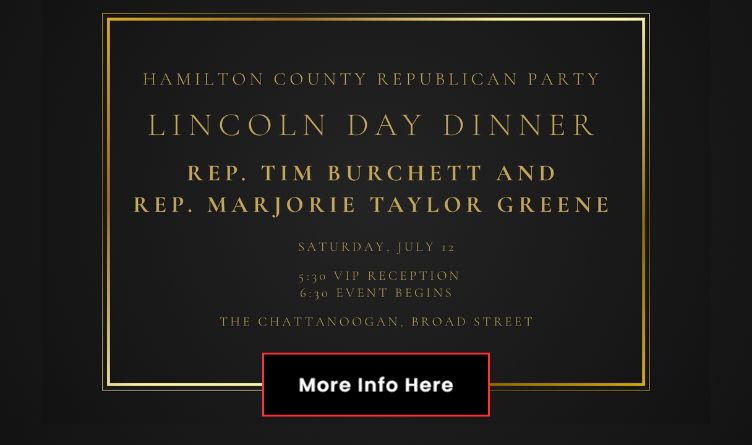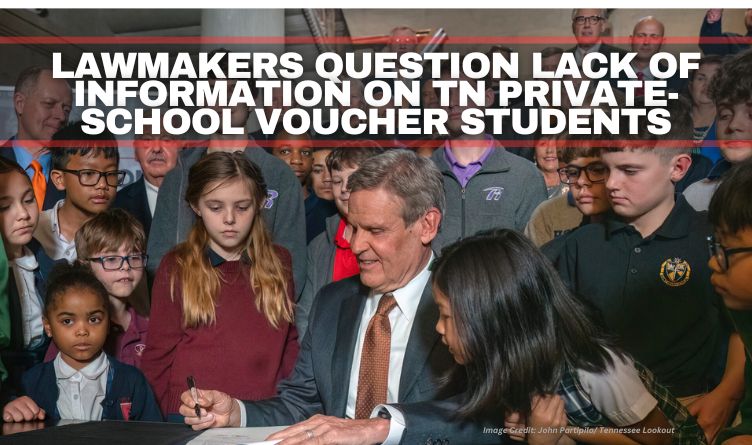Republican says legislature should demand report to assess program.
Image Credit: John Partipilo/ Tennessee Lookout
By Sam Stockard [The Tennessee Lookout – -CC BY-NC-ND 4.0] –
A Tennessee House Republican says the legislature should require the Department of Education to provide more information about private-school voucher applicants for a thorough evaluation of the new program.
Parents applying for the money don’t have to disclose where their children attended school previously, and the state is refusing to provide that information or even the counties where students live.

Additionally, applications for “universal” vouchers, those without an income cap, don’t require parents to list financial information.
Lawmakers who opposed the program are raising questions about what they perceive as critical information as the state offers nearly $7,300 each to 20,000 students to enroll in private schools, at a total cost of $146 million. Half the recipients, 10,000, have financial limits at 300% of the federal poverty level, an estimated $175,000 for a family of four, while the families of the remainder face no income restrictions.
“It seems fairly clear that the administration does not want to know these things because they’re afraid it may not line up with the narrative that was put out there for the reason they were supporting this measure,” Republican Rep. Jody Barrett of Dickson told the Lookout.

Numerous lawmakers said during debate they supported the private-school vouchers to help struggling parents send their children to better schools.
Chalkbeat initially reported on the matter and found two-thirds or more of the students in Alabama and Florida who received voucher funds already attended private schools.
Democratic Rep. Caleb Hemmer of Nashville is among the lawmakers trying to obtain what he called “basic” information about the voucher program to make sure it complies with the law.
“They’re giving out checks like Cash for Clunkers,” Hemmer said, comparing it to a 2009 federal rebate program designed to bolster the economy and encourage people to buy fuel-efficient vehicles.

Lawmakers narrowly passed Gov. Bill Lee’s main initiative this year even though the state’s own financial impact analysis showed 65% of the students who receive the vouchers would be enrolled in private schools already. Students from private schools surrounded the governor when he signed the bill into law at the State Capitol.
Barrett, who voted against the measure this year, said he requested information about students’ previous enrollment and home counties after the Education Department’s first release showed only ZIP codes. Barrett added that he asked the department to provide the home counties for applicants so lawmakers could assess the demand and tailor the program to serve students.
In contrast, the state’s Education Savings Account program for low-income students in Metro Nashville, Memphis and Chattanooga requires parents to provide financial information.
“This department just seems like they’re intent on intentionally not understanding those things. Or they’re not disclosing that information,” Barrett said.
The second-term lawmaker said the legislature should form a board to oversee the program or request a study by a group such as the Tennessee Advisory Council on Intergovernmental Relations to allow legislators to see if they’re getting a “bang for their buck.”
State Rep. Mark White, chairman of the House Education Administration Committee, told the Lookout he needs to ask the department why it’s not asking for financial information on “universal” scholarships, because it is required by the bill.
The governor’s office said the law doesn’t require the state to collect information on previous enrollment, Chalkbeat reported.
White said he spoke with officials at one private school in Memphis who told him 80% of those receiving the funds were enrolled there already.
Yet he defended the program, saying it can benefit middle-class families whose children attend private schools in Memphis with tuition costs in the $15,000 range.

The Department of Education sent out a release in late May saying it received 38,000 applications for the voucher program, about half coming from families who qualify based on their income.
The Education Department did not respond to questions from the Lookout about the program. Education Commissioner Lizzette Reynolds has not taken questions from the media in more than a year but said in the May release that demand is strong for “universal school choice.”
“All students deserve the ability to access a learning environment that best fits their unique needs,” Reynolds said in the release.
Besides the cost of the vouchers, this year’s bill contained a provision requiring local school boards to approve one-time $2,000 bonuses for teachers at a total cost of $198 million. The state is spending another $2.6 million to hire 11 people to oversee the program and $625,000 to contract with Student First Technologies to handle the online financial portion of the program.




3 Responses
I’ve been FOR school choice for a long time, but this is NOT school choice…it is a ‘tax benefit for the well off’ on the shoulders of the ‘working man’s family’! It’s a ‘shell-game’….it was a shell game when it was concocted by our politically motivated leaders and it is a shell game now. Not sure how we all ‘missed’ this little detail (no questions asked on ‘income’ level or current enrollment’) when the bill was being debated….this should be an OUTCRY from every citizen in the state, and this just proves these slick politicians know exactly what they are doing. You who promoted it better have some answers because the questions are coming! Bottom line: Benefits for a select few and as they say the rich get richer and poor get poorer. Sad that our GOP majority have now started promoting Socialism!
AMEN!!
All that’s “of God” is open and above board. This AIN’T!!